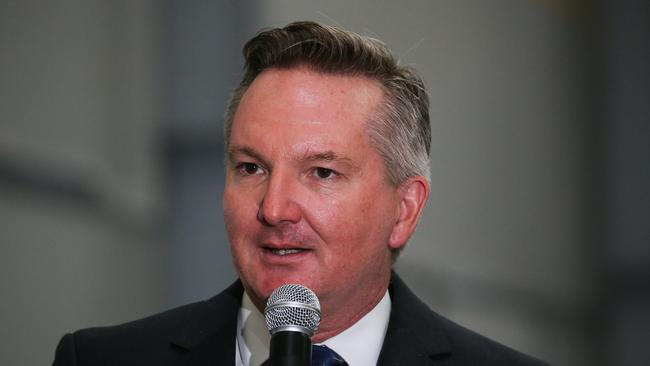Carbon border tariff consultations begin
Chris Bowen says the government is opening consultations that could pave the way for an Australian Carbon Border Adjustment Mechanism.

Consultation has been opened on policy options to address carbon leakage, including the prospect of an Australian carbon border tariff to help protect heavy industries, such as steel and cement.
Energy and Climate Minister Chris Bowen said the government was now opening the first of two separate rounds of consultation that could pave the way for an Australian Carbon Border Adjustment Mechanism.
The debate over carbon border tariffs follows the passage of Labor’s safeguard reforms that commenced in July and require a 4.9 per cent cut in emissions each year from big industrial emitters to meet Australia’s climate target of a 43 per cent reduction in emissions by 2030.
Carbon leakage occurs when heavy industries move to nations with weaker emissions policies. Mr Bowen told the Australian Industry Group on Monday night that Australia needed to “keep our domestic sovereign capacity and make it even stronger”.
“It is the right time to examine what else we should do to prevent international carbon leakage risks, while protecting Australia’s reputation as a reliable and secure trading partner,” he said.
Mr Bowen said the government’s first round of public consultation would extend until December 12, with a second round to be held in mid-2024 to seek input on the feasibility of more detailed policy options.
The government released a paper to guide the consultation process and identify the “high-level” options to address carbon leakage risks, which Mr Bowen said might result in the introduction of a carbon border adjustment mechanism. “But it could also include emissions product standards, public funding and multilateral initiatives,” he said.
The consultations will feed into the broader review examining how Australia should best address carbon leakage – a process being led by ANU Professor Frank Jotzo – and which is due to provide its findings to government by September 2024.
Mr Bowen said the government wanted heavy industries to decarbonise, while continuing to manufacture and welcomed submissions from industry, business, environmental groups, researchers and trade partners. He also defended the government’s intervention in the energy market last year to cap coal and gas prices, warning that inaction would have seen the viability of Australian industry “increasingly threatened.”
The government hoped to make an announcement in coming weeks on the first firm supply commitments under its gas code of conduct, which sets a price cap of $12 a gigajoule.




To join the conversation, please log in. Don't have an account? Register
Join the conversation, you are commenting as Logout